Morefine has recently released their S500+ series of mini PC series which features models with either a Zen 2 or Zen 3 AMD mobile processor. Morefine kindly sent one for review and I’ve looked at performance running both Windows and Ubuntu.
Morefine S500+ Hardware Overview
The S500+ physically consists of a 149 x 145 x 40mm (5.87 x 5.71 x 1.57 inches) square metal case with a plastic top. As an actively cooled mini PC, it is available with either an AMD Zen 2 or Zen 3 mobile processor. The review model came with AMD’s 7 nm Zen 2 Ryzen 7 5700U Lucienne processor which is an eight-core 16-thread 1.8 GHz mobile processor boosting to 4.3 GHz with Radeon Graphics.
The front panel has a power button, a light to indicate power, two USB 3.1 ports, and a Type-C USB 3.1 port with Alternate Mode.
The rear panel includes a 3.5mm headphone jack, a 2.5 gigabit Ethernet port, a gigabit Ethernet port, an HDMI 2.0 port, a DisplayPort, four USB 2.0 ports, and the power jack.
Internally there is an M.2 2230 WiFi 6E (or 802.11ax) Mediatek MT7921K card which supports the new 6 GHz band, an M.2 2280 NVMe PCIe Gen 3.0 SSD drive (the review model included a 512 GB ADATA XPG Gammix S11 Lite drive complete with Windows 10 Pro installed) and the ability to add a 2.5” SATA drive to the lid which is connected to the motherboard by the included cables:
It is also possible to add another M.2 2280 NVMe or SATA SSD drive on the underside of the motherboard:
Morefine has a video showing the installation process for memory and drives.
The two SODIMM memory slots support up to 64 GB of memory and the review model included two sticks of Crucial 8 GB DDR4 3200 MHz memory for a total of 16 GB noting that this particular memory is single-rank:
The specifications state:
and lists two of the USB ports as ‘3.2 Gen 2’ so I tested them together with the Type-C USB port using a Samsung 980 PRO PCle 4.0 NVMe M.2 SSD housed in a ‘USB to M.2 NVMe adapter’ (ORICO M2PAC3-G20 M.2 NVMe SSD Enclosure) which showed that they were all USB 3.1 (USB 3.2 Gen 2×1 i.e. 10 Gbit/s):
Box contents
In the box, you get a power adapter and cord, an HDMI cable, a VESA mounting bracket together with a small packet of miscellaneous screws, a SATA drive connector, and a 2.5” drive insulation sticker. Also included is a multilingual user manual:
Review Methodology
When reviewing mini PCs, I typically look at their performance under both Windows and Linux (Ubuntu) and compare them against some of the more recently released mini PCs. Where possible I review using Windows 11 version 21H2 and Ubuntu 20.04.4 LTS although, in the future, Ubuntu 22.04 LTS will be used now that it has been released. I test with a selection of commonly used Windows benchmarks and/or equivalents for Linux together with Thomas Kaiser’s ‘sbc-bench’ which is a small set of different CPU performance tests focusing on server performance when run on Ubuntu. I also use ‘Phoronix Test Suite’ and benchmark with the same set of tests on both Windows and Ubuntu for comparison purposes. On Ubuntu, I also compile the v5.4 Linux kernel using the default config as a test of performance using a real-world scenario.
Prior to benchmarking, I perform all necessary installations and updates to run the latest versions of both OSes. I also capture some basic details of the device for each OS.
Installation Issues on Morefine S500+
Initially, the S500+ came installed with Windows 10 Pro and had a preconfigured user account ‘PC’ already set up and which Windows boots into:
On Ubuntu, it was initially not possible to connect to the 5.0 GHz WiFi network as the ‘Activation of network connection failed’:

In order to successfully connect I found that it was necessary to ‘unbind’ the driver first and then ‘bind’ the driver again:
Additionally, the ‘dmesg’ showed some ACPI errors and the significance of which was unknown at the time of testing:
Otherwise, running the benchmarks went smoothly with the exception of the ‘Selenium’ test from the ‘Phoronix Test Suite’. When running the test with ‘Chrome’ selected it errored with the message ‘The test quit with a non-zero exit status’. This is typically caused by the benchmark driver used by the test not supporting the newest Chrome release and has been encountered before. As a result, the Octane tests were run manually and edited into the final results.
Morefine S500+ Windows Performance
Initially, the S500+ came installed with a licensed copy of Windows 10 Pro version 20H2 build 19042.631:
which I upgraded to Windows 11 Pro version 21H2 and after applying updates the build was 22000.593. A quick look at the hardware information shows it is aligned to the specification:
A brief check showed working audio, Wi-Fi, Bluetooth, Ethernet, and video output from the Type-C USB port:
I then set the power mode to ‘High performance’ and ran my standard set of benchmarking tools to look at performance under Windows:
I also tested Cinebench R23:
For my specific set of Phoronix Test Suite tests the results were:
All these results can then be compared with other recent mini PCs:
Ubuntu 20.04 on an AMD Ryzen 7 5700U mini PC
After shrinking the Windows partition in half and creating a new partition, I installed Ubuntu using an Ubuntu 20.04.4 ISO as dual boot. After installation and updates a brief check showed working audio, Wi-Fi (after applying the above fix), Bluetooth, Ethernet, and video output from the Type-C USB port:
The key hardware information under Ubuntu 20.04.4 is as follows:
|
1 2 3 4 5 6 7 8 9 10 11 12 13 14 15 16 17 18 19 20 21 22 23 24 25 26 27 28 29 30 31 32 33 34 35 36 37 38 39 40 41 42 43 44 45 46 47 48 49 50 51 52 53 54 55 56 57 58 59 60 61 62 63 64 65 66 67 68 69 70 71 72 73 74 75 76 77 78 79 80 81 82 83 84 85 86 87 88 89 90 91 92 93 94 95 96 97 98 99 100 101 102 103 104 105 106 107 108 109 110 111 112 113 114 115 116 117 118 119 120 121 122 123 124 125 126 127 128 129 130 131 132 133 134 135 136 137 138 139 140 141 142 143 144 145 146 147 148 149 150 151 152 153 154 155 156 157 158 159 160 161 162 163 164 165 166 167 168 169 170 171 172 173 174 175 176 177 178 179 180 181 182 183 184 185 186 187 188 189 190 191 192 193 194 195 196 197 198 199 200 201 202 203 204 205 206 207 208 209 210 211 212 213 214 215 216 217 218 219 220 221 222 223 224 225 226 227 228 229 230 231 232 233 234 235 236 237 238 239 240 241 242 243 244 245 246 247 248 249 250 251 252 253 254 255 256 257 258 259 260 |
linuxium@S500Plus:~$ lsb_release -a Distributor ID: Ubuntu Description: Ubuntu 20.04.4 LTS Release: 20.04 Codename: focal linuxium@S500Plus:~$ linuxium@S500Plus:~$ uname -a Linux S500Plus 5.13.0-39-generic #44~20.04.1-Ubuntu SMP Thu Mar 24 16:43:35 UTC 2022 x86_64 x86_64 x86_64 GNU/Linux linuxium@S500Plus:~$ linuxium@S500Plus:~$ inxi -Fzc0 System: Kernel: 5.13.0-39-generic x86_64 bits: 64 Desktop: Gnome 3.36.9 Distro: Ubuntu 20.04.4 LTS (Focal Fossa) Machine: Type: Laptop System: win element product: MoreFine S500+ v: N/A serial: <filter> Mobo: N/A model: N/A serial: <filter> UEFI: American Megatrends LLC. v: S013_V1.3_P4C3M43_MoreFine date: 11/09/2021 CPU: Topology: 8-Core model: AMD Ryzen 7 5700U with Radeon Graphics bits: 64 type: MT MCP L2 cache: 4096 KiB Speed: 2929 MHz min/max: 1400/1800 MHz Core speeds (MHz): 1: 1920 2: 3051 3: 1397 4: 1397 5: 1397 6: 1396 7: 1397 8: 1397 9: 1397 10: 1397 11: 1397 12: 1397 13: 1621 14: 1397 15: 1397 16: 1397 Graphics: Device-1: Advanced Micro Devices [AMD/ATI] driver: amdgpu v: kernel Display: server: X.Org 1.20.13 driver: amdgpu resolution: 1920x1080~60Hz OpenGL: renderer: AMD RENOIR (DRM 3.41.0 5.13.0-39-generic LLVM 12.0.0) v: 4.6 Mesa 21.2.6 Audio: Device-1: Advanced Micro Devices [AMD/ATI] driver: snd_hda_intel Device-2: Advanced Micro Devices [AMD] Raven/Raven2/FireFlight/Renoir Audio Processor driver: N/A Device-3: Advanced Micro Devices [AMD] Family 17h HD Audio driver: snd_hda_intel Sound Server: ALSA v: k5.13.0-39-generic Network: Device-1: Realtek RTL8125 2.5GbE driver: r8169 IF: eno1 state: down mac: <filter> Device-2: Realtek RTL8111/8168/8411 PCI Express Gigabit Ethernet driver: r8169 IF: enp2s0 state: up speed: 1000 Mbps duplex: full mac: <filter> Device-3: MEDIATEK driver: mt7921e IF: wlp3s0 state: down mac: <filter> Drives: Local Storage: total: 476.94 GiB used: 20.75 GiB (4.4%) ID-1: /dev/nvme0n1 vendor: Seagate model: XPG GAMMIX S11L size: 476.94 GiB Partition: ID-1: / size: 233.29 GiB used: 20.70 GiB (8.9%) fs: ext4 dev: /dev/nvme0n1p5 Sensors: System Temperatures: cpu: 46.6 C mobo: N/A gpu: amdgpu temp: 29 C Fan Speeds (RPM): N/A Info: Processes: 343 Uptime: 4m Memory: 15.01 GiB used: 1.03 GiB (6.9%) Shell: new-review-test inxi: 3.0.38 linuxium@S500Plus:~$ linuxium@S500Plus:~$ df -h Filesystem Size Used Avail Use% Mounted on udev 7.5G 0 7.5G 0% /dev tmpfs 1.6G 1.8M 1.5G 1% /run /dev/nvme0n1p5 234G 21G 201G 10% / tmpfs 7.6G 0 7.6G 0% /dev/shm tmpfs 5.0M 4.0K 5.0M 1% /run/lock tmpfs 7.6G 0 7.6G 0% /sys/fs/cgroup /dev/loop0 128K 128K 0 100% /snap/bare/5 /dev/loop1 62M 62M 0 100% /snap/core20/1328 /dev/loop2 55M 55M 0 100% /snap/snap-store/558 /dev/loop3 66M 66M 0 100% /snap/gtk-common-themes/1519 /dev/loop4 249M 249M 0 100% /snap/gnome-3-38-2004/99 /dev/loop5 44M 44M 0 100% /snap/snapd/14978 /dev/nvme0n1p1 96M 58M 39M 60% /boot/efi tmpfs 1.6G 40K 1.6G 1% /run/user/1000 linuxium@S500Plus:~$ linuxium@S500Plus:~$ lsblk -a NAME MAJ:MIN RM SIZE RO TYPE MOUNTPOINT loop0 7:0 0 4K 1 loop /snap/bare/5 loop1 7:1 0 61.9M 1 loop /snap/core20/1328 loop2 7:2 0 54.2M 1 loop /snap/snap-store/558 loop3 7:3 0 65.2M 1 loop /snap/gtk-common-themes/1519 loop4 7:4 0 248.8M 1 loop /snap/gnome-3-38-2004/99 loop5 7:5 0 43.6M 1 loop /snap/snapd/14978 loop6 7:6 0 0 loop loop7 7:7 0 0 loop nvme0n1 259:0 0 477G 0 disk ├─nvme0n1p1 259:1 0 100M 0 part /boot/efi ├─nvme0n1p2 259:2 0 16M 0 part ├─nvme0n1p3 259:3 0 238G 0 part ├─nvme0n1p4 259:4 0 781M 0 part └─nvme0n1p5 259:5 0 238G 0 part / linuxium@S500Plus:~$ linuxium@S500Plus:~$ sudo lshw -C cpu *-cpu description: CPU product: AMD Ryzen 7 5700U with Radeon Graphics vendor: Advanced Micro Devices [AMD] physical id: 18 bus info: cpu@0 version: AMD Ryzen 7 5700U with Radeon Graphics serial: <filter> slot: FP6 size: 3126MHz capacity: 4369MHz width: 64 bits clock: 100MHz capabilities: lm fpu fpu_exception wp vme de pse tsc msr pae mce cx8 apic sep mtrr pge mca cmov pat pse36 clflush mmx fxsr sse sse2 ht syscall nx mmxext fxsr_opt pdpe1gb rdtscp x86-64 constant_tsc rep_good nopl nonstop_tsc cpuid extd_apicid aperfmperf pni pclmulqdq monitor ssse3 fma cx16 sse4_1 sse4_2 movbe popcnt aes xsave avx f16c rdrand lahf_lm cmp_legacy svm extapic cr8_legacy abm sse4a misalignsse 3dnowprefetch osvw ibs skinit wdt tce topoext perfctr_core perfctr_nb bpext perfctr_llc mwaitx cpb cat_l3 cdp_l3 hw_pstate ssbd mba ibrs ibpb stibp vmmcall fsgsbase bmi1 avx2 smep bmi2 cqm rdt_a rdseed adx smap clflushopt clwb sha_ni xsaveopt xsavec xgetbv1 xsaves cqm_llc cqm_occup_llc cqm_mbm_total cqm_mbm_local clzero irperf xsaveerptr rdpru wbnoinvd arat npt lbrv svm_lock nrip_save tsc_scale vmcb_clean flushbyasid decodeassists pausefilter pfthreshold avic v_vmsave_vmload vgif v_spec_ctrl umip rdpid overflow_recov succor smca cpufreq configuration: cores=8 enabledcores=8 threads=16 linuxium@S500Plus:~$ linuxium@S500Plus:~$ sudo lshw -C memory *-firmware description: BIOS vendor: American Megatrends International, LLC. physical id: 0 version: S013_V1.3_P4C3M43_MoreFine date: 11/09/2021 size: 64KiB capabilities: pci upgrade shadowing cdboot bootselect socketedrom edd int13floppynec int13floppytoshiba int13floppy360 int13floppy1200 int13floppy720 int13floppy2880 int5printscreen int9keyboard int14serial int17printer int10video acpi usb biosbootspecification uefi *-memory description: System Memory physical id: 13 slot: System board or motherboard size: 16GiB *-bank:0 description: SODIMM DDR4 Synchronous Unbuffered (Unregistered) 3200 MHz (0.3 ns) product: CT8G4SFS832A.M8FR vendor: Unknown physical id: 0 serial: <filter> slot: DIMM 0 size: 8GiB width: 64 bits clock: 3200MHz (0.3ns) *-bank:1 description: SODIMM DDR4 Synchronous Unbuffered (Unregistered) 3200 MHz (0.3 ns) product: CT8G4SFS832A.M8FR vendor: Unknown physical id: 1 serial: <filter> slot: DIMM 0 size: 8GiB width: 64 bits clock: 3200MHz (0.3ns) *-cache:0 description: L1 cache physical id: 15 slot: L1 - Cache size: 512KiB capacity: 512KiB clock: 1GHz (1.0ns) capabilities: pipeline-burst internal write-back unified configuration: level=1 *-cache:1 description: L2 cache physical id: 16 slot: L2 - Cache size: 4MiB capacity: 4MiB clock: 1GHz (1.0ns) capabilities: pipeline-burst internal write-back unified configuration: level=2 *-cache:2 description: L3 cache physical id: 17 slot: L3 - Cache size: 8MiB capacity: 8MiB clock: 1GHz (1.0ns) capabilities: pipeline-burst internal write-back unified configuration: level=3 linuxium@S500Plus:~$ linuxium@S500Plus:~$ free -mh total used free shared buff/cache available Mem: 15Gi 989Mi 13Gi 2.0Mi 677Mi 13Gi Swap: 2.0Gi 0B 2.0Gi linuxium@S500Plus:~$ linuxium@S500Plus:~$ sudo lshw -C network *-network description: Ethernet interface product: RTL8125 2.5GbE Controller vendor: Realtek Semiconductor Co., Ltd. physical id: 0 bus info: pci@0000:01:00.0 logical name: eno1 version: 05 serial: <filter> capacity: 1Gbit/s width: 64 bits clock: 33MHz capabilities: pm msi pciexpress msix vpd bus_master cap_list ethernet physical tp mii 10bt 10bt-fd 100bt 100bt-fd 1000bt-fd autonegotiation configuration: autonegotiation=on broadcast=yes driver=r8169 driverversion=5.13.0-39-generic firmware=rtl8125b-2_0.0.2 07/13/20 latency=0 link=no multicast=yes port=twisted pair resources: irq:24 ioport:f000(size=256) memory:fcf00000-fcf0ffff memory:fcf10000-fcf13fff *-network description: Ethernet interface product: RTL8111/8168/8411 PCI Express Gigabit Ethernet Controller vendor: Realtek Semiconductor Co., Ltd. physical id: 0 bus info: pci@0000:02:00.0 logical name: enp2s0 version: 15 serial: <filter> size: 1Gbit/s capacity: 1Gbit/s width: 64 bits clock: 33MHz capabilities: pm msi pciexpress msix bus_master cap_list ethernet physical tp mii 10bt 10bt-fd 100bt 100bt-fd 1000bt-fd autonegotiation configuration: autonegotiation=on broadcast=yes driver=r8169 driverversion=5.13.0-39-generic duplex=full firmware=rtl8168h-2_0.0.2 02/26/15 ip=<filter> latency=0 link=yes multicast=yes port=twisted pair speed=1Gbit/s resources: irq:58 ioport:e000(size=256) memory:fce04000-fce04fff memory:fce00000-fce03fff *-network description: Wireless interface product: MEDIATEK Corp. vendor: MEDIATEK Corp. physical id: 0 bus info: pci@0000:03:00.0 logical name: wlp3s0 version: 00 serial: <filter> width: 64 bits clock: 33MHz capabilities: pciexpress msi pm bus_master cap_list ethernet physical wireless configuration: broadcast=yes driver=mt7921e driverversion=5.13.0-39-generic firmware=____010000-20220209150915 latency=0 link=no multicast=yes wireless=IEEE 802.11 resources: irq:71 memory:e0300000-e03fffff memory:e0400000-e0403fff memory:e0404000-e0404fff linuxium@S500Plus:~$ linuxium@S500Plus:~$ sudo lshw -C display *-display description: VGA compatible controller product: Advanced Micro Devices, Inc. [AMD/ATI] vendor: Advanced Micro Devices, Inc. [AMD/ATI] physical id: 0 bus info: pci@0000:05:00.0 version: c1 width: 64 bits clock: 33MHz capabilities: pm pciexpress msi msix vga_controller bus_master cap_list configuration: driver=amdgpu latency=0 resources: irq:47 memory:d0000000-dfffffff memory:e0000000-e01fffff ioport:d000(size=256) memory:fcb00000-fcb7ffff linuxium@S500Plus:~$ linuxium@S500Plus:~$ lsusb Bus 004 Device 001: ID 1d6b:0003 Linux Foundation 3.0 root hub Bus 003 Device 002: ID 0e8d:0608 MediaTek Inc. Wireless_Device Bus 003 Device 001: ID 1d6b:0002 Linux Foundation 2.0 root hub Bus 002 Device 001: ID 1d6b:0003 Linux Foundation 3.0 root hub Bus 001 Device 003: ID 093a:2510 Pixart Imaging, Inc. Optical Mouse Bus 001 Device 002: ID 046d:c31c Logitech, Inc. Keyboard K120 Bus 001 Device 001: ID 1d6b:0002 Linux Foundation 2.0 root hub linuxium@S500Plus:~$ linuxium@S500Plus:~$ lspci -nn 00:00.0 Host bridge [0600]: Advanced Micro Devices, Inc. [AMD] Renoir Root Complex [1022:1630] 00:00.2 IOMMU [0806]: Advanced Micro Devices, Inc. [AMD] Renoir IOMMU [1022:1631] 00:01.0 Host bridge [0600]: Advanced Micro Devices, Inc. [AMD] Renoir PCIe Dummy Host Bridge [1022:1632] 00:01.3 PCI bridge [0604]: Advanced Micro Devices, Inc. [AMD] Renoir PCIe GPP Bridge [1022:1634] 00:02.0 Host bridge [0600]: Advanced Micro Devices, Inc. [AMD] Renoir PCIe Dummy Host Bridge [1022:1632] 00:02.1 PCI bridge [0604]: Advanced Micro Devices, Inc. [AMD] Renoir PCIe GPP Bridge [1022:1634] 00:02.2 PCI bridge [0604]: Advanced Micro Devices, Inc. [AMD] Renoir PCIe GPP Bridge [1022:1634] 00:02.3 PCI bridge [0604]: Advanced Micro Devices, Inc. [AMD] Renoir PCIe GPP Bridge [1022:1634] 00:08.0 Host bridge [0600]: Advanced Micro Devices, Inc. [AMD] Renoir PCIe Dummy Host Bridge [1022:1632] 00:08.1 PCI bridge [0604]: Advanced Micro Devices, Inc. [AMD] Renoir Internal PCIe GPP Bridge to Bus [1022:1635] 00:08.2 PCI bridge [0604]: Advanced Micro Devices, Inc. [AMD] Renoir Internal PCIe GPP Bridge to Bus [1022:1635] 00:14.0 SMBus [0c05]: Advanced Micro Devices, Inc. [AMD] FCH SMBus Controller [1022:790b] (rev 51) 00:14.3 ISA bridge [0601]: Advanced Micro Devices, Inc. [AMD] FCH LPC Bridge [1022:790e] (rev 51) 00:18.0 Host bridge [0600]: Advanced Micro Devices, Inc. [AMD] Renoir Device 24: Function 0 [1022:1448] 00:18.1 Host bridge [0600]: Advanced Micro Devices, Inc. [AMD] Renoir Device 24: Function 1 [1022:1449] 00:18.2 Host bridge [0600]: Advanced Micro Devices, Inc. [AMD] Renoir Device 24: Function 2 [1022:144a] 00:18.3 Host bridge [0600]: Advanced Micro Devices, Inc. [AMD] Renoir Device 24: Function 3 [1022:144b] 00:18.4 Host bridge [0600]: Advanced Micro Devices, Inc. [AMD] Renoir Device 24: Function 4 [1022:144c] 00:18.5 Host bridge [0600]: Advanced Micro Devices, Inc. [AMD] Renoir Device 24: Function 5 [1022:144d] 00:18.6 Host bridge [0600]: Advanced Micro Devices, Inc. [AMD] Renoir Device 24: Function 6 [1022:144e] 00:18.7 Host bridge [0600]: Advanced Micro Devices, Inc. [AMD] Renoir Device 24: Function 7 [1022:144f] 01:00.0 Ethernet controller [0200]: Realtek Semiconductor Co., Ltd. RTL8125 2.5GbE Controller [10ec:8125] (rev 05) 02:00.0 Ethernet controller [0200]: Realtek Semiconductor Co., Ltd. RTL8111/8168/8411 PCI Express Gigabit Ethernet Controller [10ec:8168] (rev 15) 03:00.0 Network controller [0280]: MEDIATEK Corp. Device [14c3:0608] 04:00.0 Non-Volatile memory controller [0108]: ADATA Technology Co., Ltd. Device [1cc1:5766] (rev 01) 05:00.0 VGA compatible controller [0300]: Advanced Micro Devices, Inc. [AMD/ATI] Device [1002:164c] (rev c1) 05:00.1 Audio device [0403]: Advanced Micro Devices, Inc. [AMD/ATI] Device [1002:1637] 05:00.2 Encryption controller [1080]: Advanced Micro Devices, Inc. [AMD] Family 17h (Models 10h-1fh) Platform Security Processor [1022:15df] 05:00.3 USB controller [0c03]: Advanced Micro Devices, Inc. [AMD] Renoir USB 3.1 [1022:1639] 05:00.4 USB controller [0c03]: Advanced Micro Devices, Inc. [AMD] Renoir USB 3.1 [1022:1639] 05:00.5 Multimedia controller [0480]: Advanced Micro Devices, Inc. [AMD] Raven/Raven2/FireFlight/Renoir Audio Processor [1022:15e2] (rev 01) 05:00.6 Audio device [0403]: Advanced Micro Devices, Inc. [AMD] Family 17h (Models 10h-1fh) HD Audio Controller [1022:15e3] 06:00.0 SATA controller [0106]: Advanced Micro Devices, Inc. [AMD] FCH SATA Controller [AHCI mode] [1022:7901] (rev 81) 06:00.1 SATA controller [0106]: Advanced Micro Devices, Inc. [AMD] FCH SATA Controller [AHCI mode] [1022:7901] (rev 81) linuxium@S500Plus:~$ |
I then set the CPU Scaling Governor to ‘performance’ and ran my Linux benchmarks for which the majority of the results are text-based but the graphical ones included:
and the latter can be directly compared to when run in Windows using the OpenGL render:
I also ran PassMark PerformanceTest Linux:
which can be directly compared to the results from when it was run on Windows:
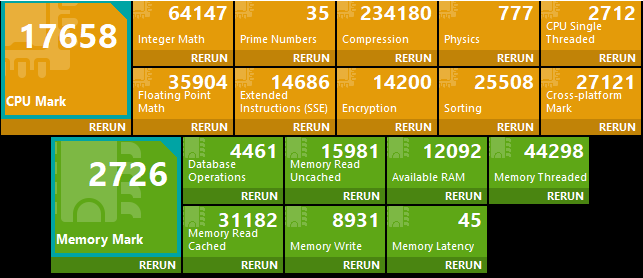
For the same set of Phoronix Test Suite tests the results were:
The complete results together with a comparison against other recent mini PCs are:
Video playback in browsers & Kodi
For real-world testing, I played some videos in Edge, Chrome and Kodi on Windows and in Firefox, Chrome and Kodi on Ubuntu. No video playback issues were encountered playing up to 4K 60 FPS videos:
However, the fan was noticeably audible during 4K playback on Ubuntu in both Firefox where it reached 50 dBA at times, and also Chrome where it was slightly better reaching only 45 dBA sometimes.
Gaming
The AMD integrated Radeon Graphics are relatively powerful for a mini PC as indicated by the Unigine Heaven scores. Testing Shadow Of The Tomb Raider using the built-in benchmark under Steam on both Windows and Ubuntu at 1080p and 720p resolution with the graphical preset of ‘high’ and ‘low’ resulted in the average FPS as follows:
with Windows being marginally better than Ubuntu.
Thermals
The S500+ uses active cooling and running a stress test on Ubuntu saw the CPU temperature climb to a peak of 80°C before dropping down to 68°C where it remained for the duration of the test:
If the CPU frequency is monitored during the stress test it can be seen that it initially averages around 2975 MHz before dropping to an average of around 2745 MHz as a result of thermal throttling when the temperature peaked:
During the stress test, the maximum temperature I recorded on the top of the device was around 31.0°C at an ambient room temperature of 21.0°C. The fan however is audible reaching 50 dBA on my sound meter next to the device during the stress test. This was also the case for a Cinebench test on Windows whereas at idle the fan was around 34 dBA.
The BIOS (see below) does include fan control options which are set to manual by default:
Networking
Network connectivity throughput was measured on Ubuntu using ‘iperf’:
Morefine S500+ Power consumption
Power consumption was measured as follows:
- Initially plugged in – 1.3 Watts
- Powered off (shutdown) – 0.6 Watts (Windows) and 0.6 Watts (Ubuntu)
- BIOS* – 23.0 Watts
- GRUB boot menu – 21.0 Watts
- Idle – 6.2 Watts (Windows) and 4.8 Watts (Ubuntu)
- CPU stressed – 39.6 Watts (Windows ‘Cinebench’) and 36.0 Watts (Ubuntu ‘stress’)
- Video playback** – 17.2 Watts (Windows Edge 4K60fps) and 36.1 Watts (Ubuntu Chrome 4K60fps)
*BIOS (see below)
**The power figures fluctuate notably due to the fan so the value is the average of the median high and median low power readings.
Aptio Setup BIOS
Powering up the mini PC and hitting the F7 key results in a boot menu that includes access to the BIOS. The BIOS is unrestricted and the following video includes the ‘Fan Control’, ‘POR’ and ‘AC Loss Control’ settings:
Final Observations
One of the key highlights of the Morefine S500+ series is the additional storage configurations with the ability to add an additional NVMe drive. This could also be used to add an eGPU via a ‘PCIe x16 to M.2 NVMe adapter’. Unfortunately during intensive CPU or iCPU processing the fan does become audible however the overall performance is very good.
| Highlights | Limitations |
|---|---|
| Additional storage expandability including NVMe | No SD card slot |
| Dual Ethernet ports including 2.5 Gbps | Audible fan |
I’d like to thank Morefine for providing the S500+ for review. It retails at around $769 for the tested configuration from Morefine.

Ian is interested in mini PCs and helps with reviews of mini PCs running Windows, Ubuntu and other Linux operating systems. You can follow him on Facebook or Twitter.
Support CNX Software! Donate via cryptocurrencies, become a Patron on Patreon, or purchase goods on Amazon or Aliexpress. We also use affiliate links in articles to earn commissions if you make a purchase after clicking on those links.


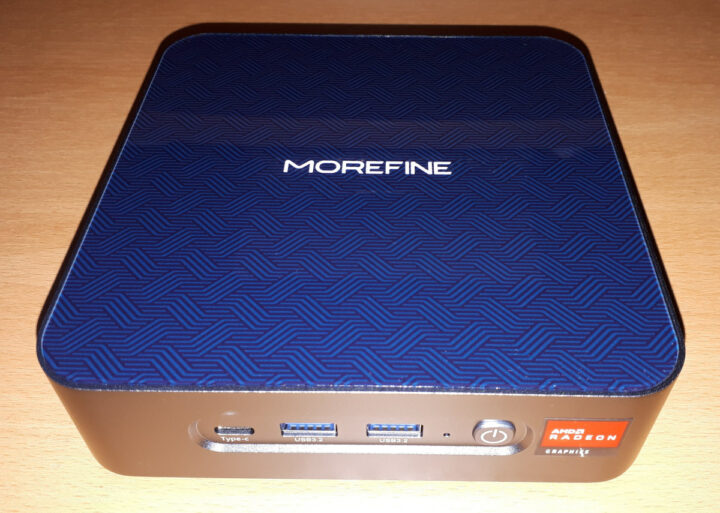
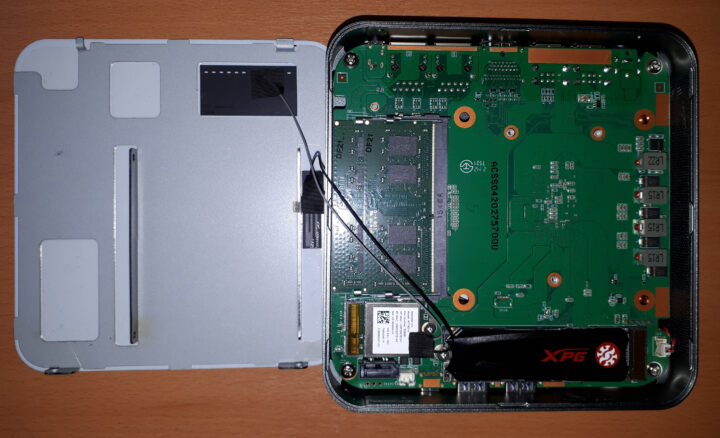
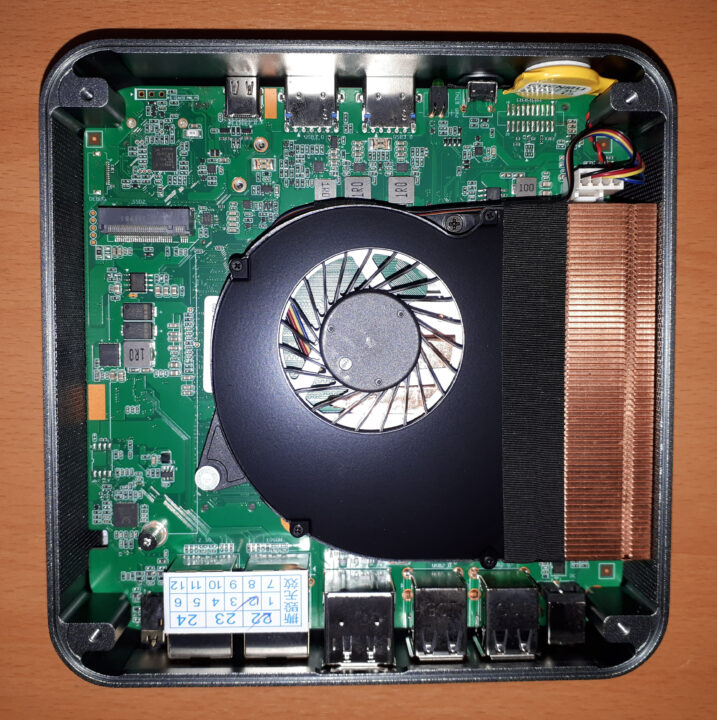

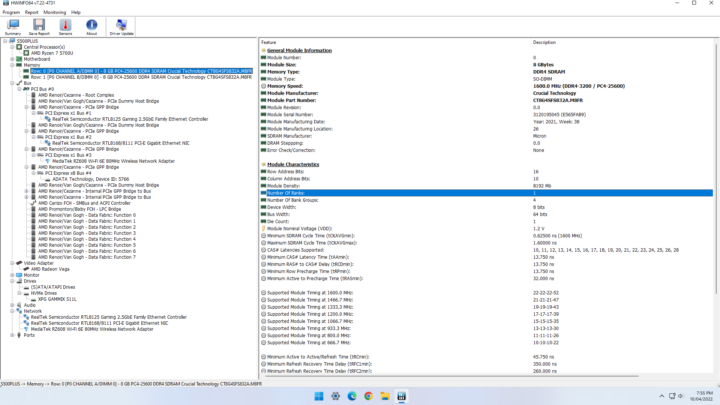
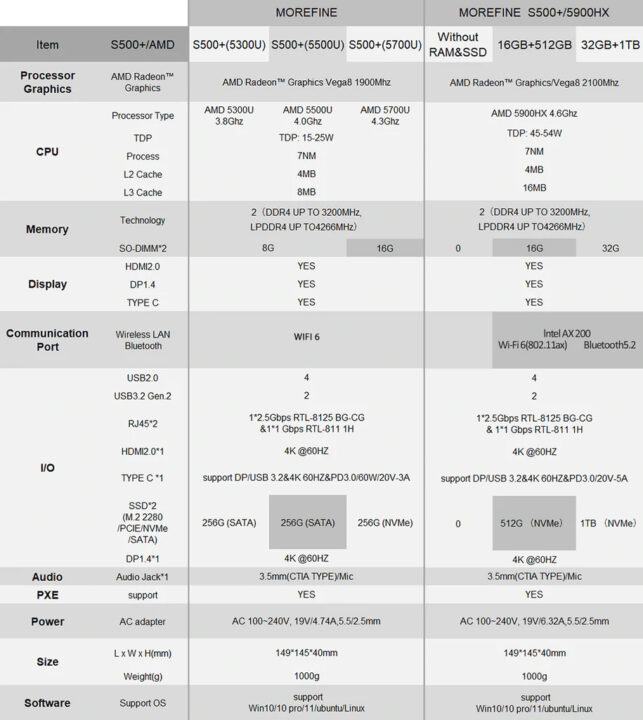
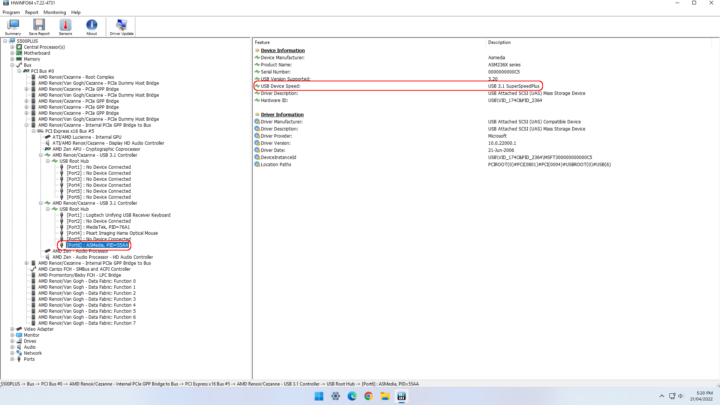
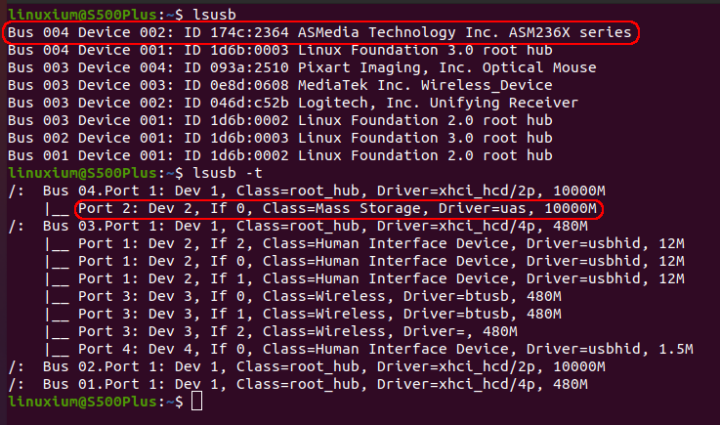
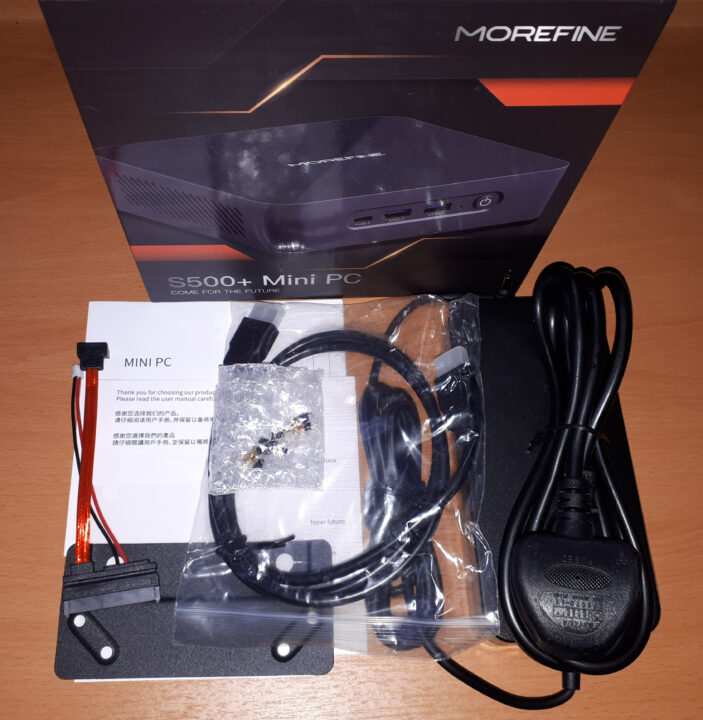
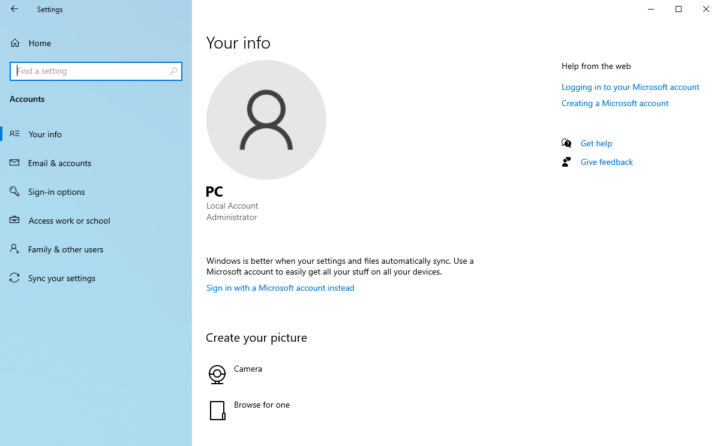


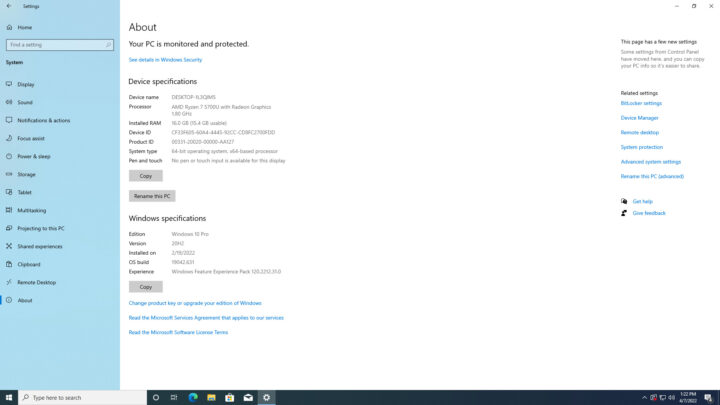
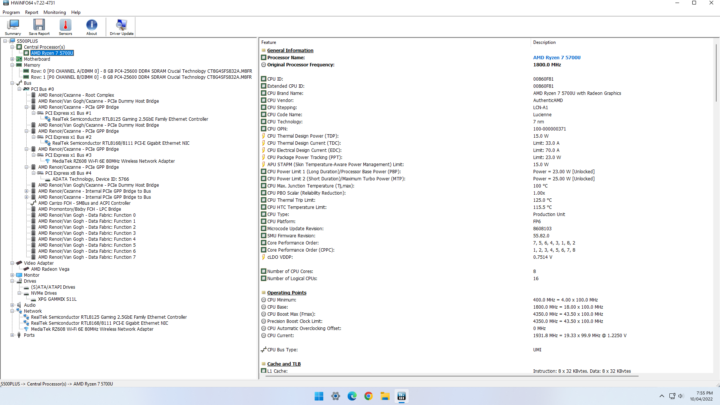
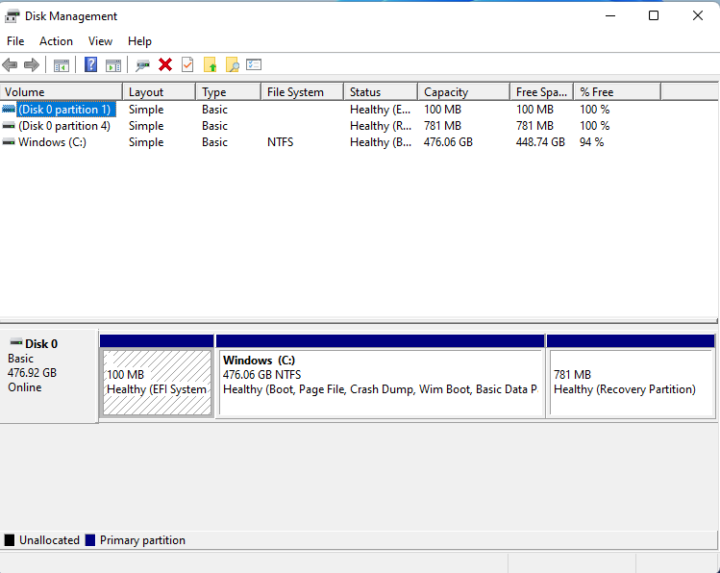
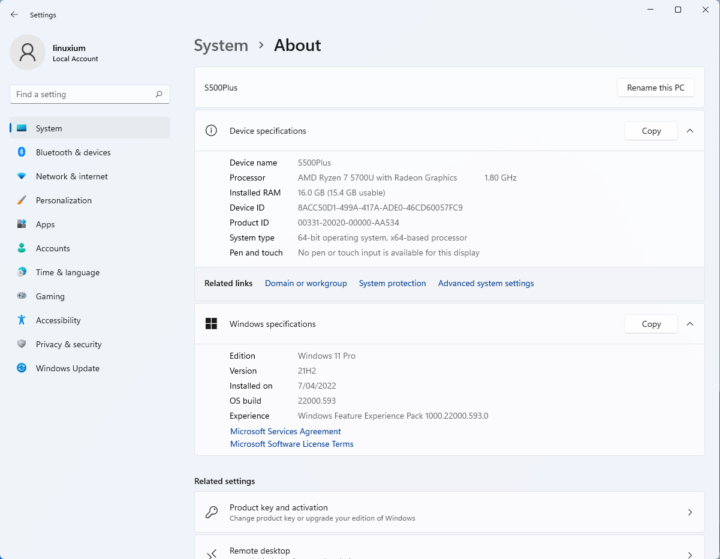
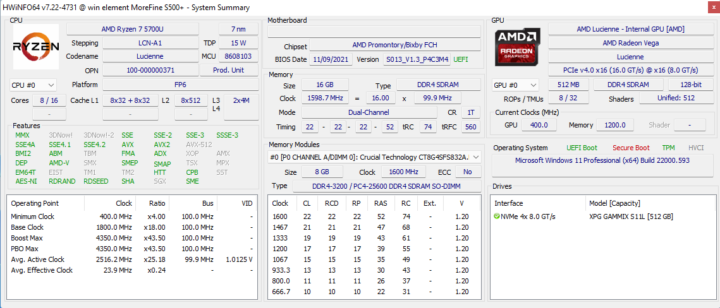
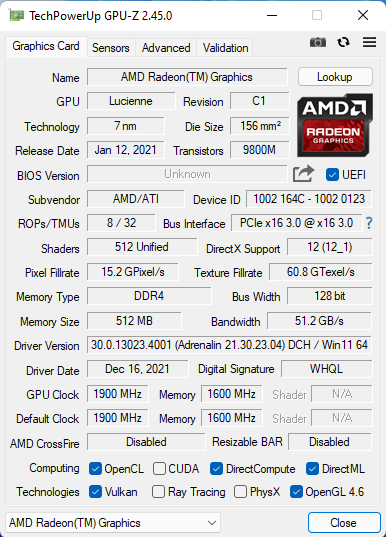

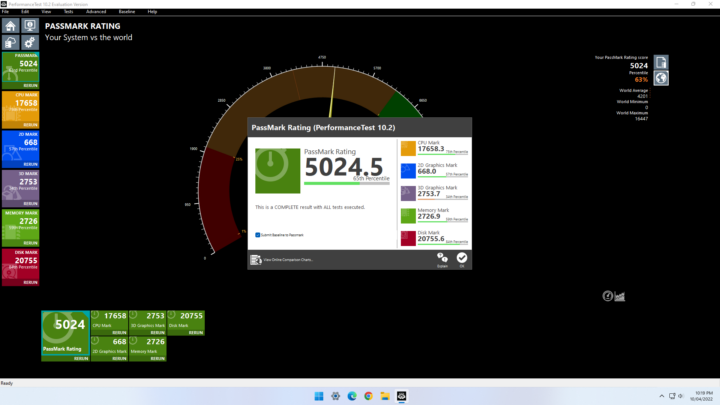
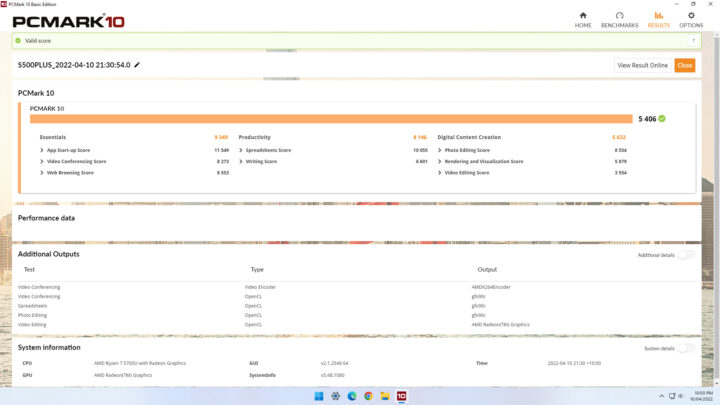
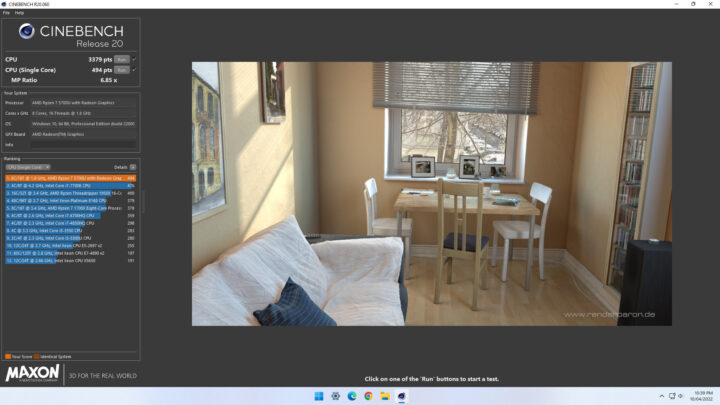
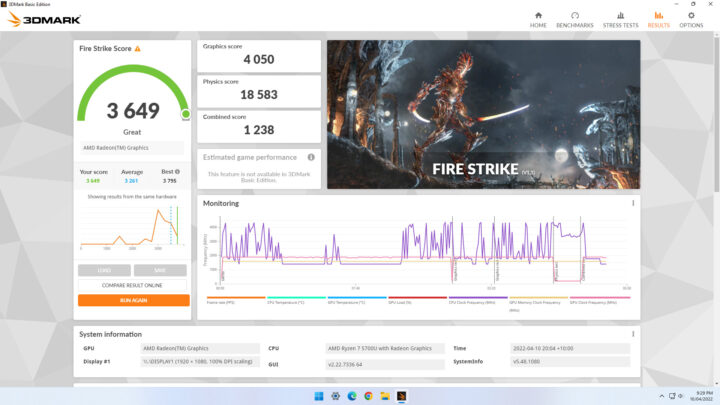
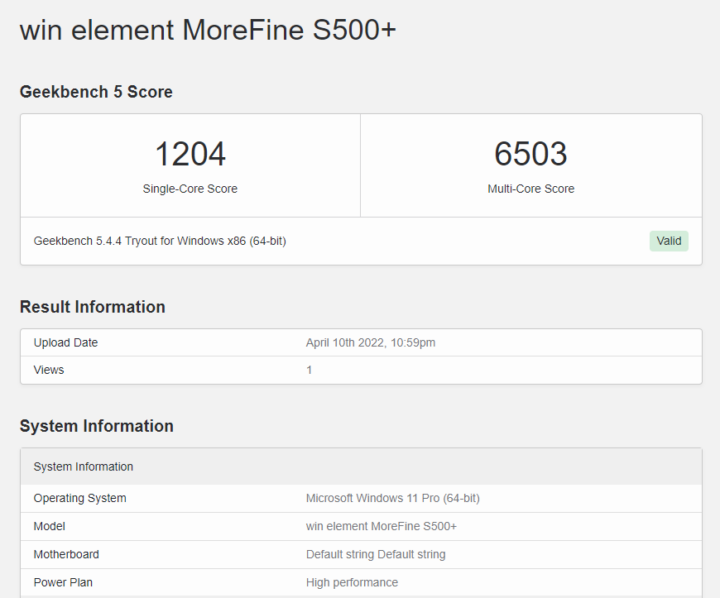
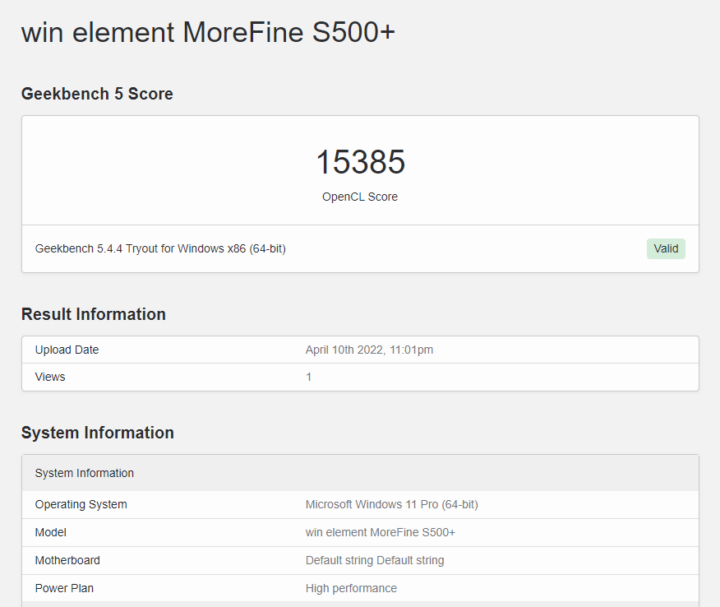
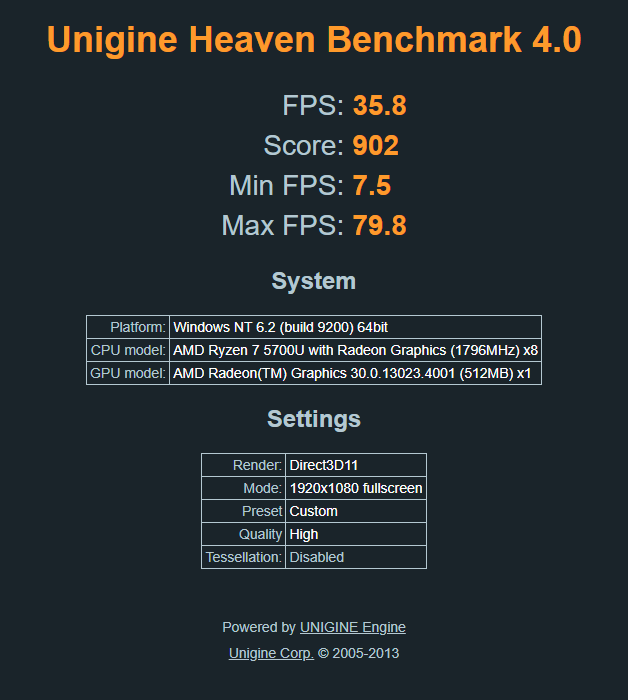
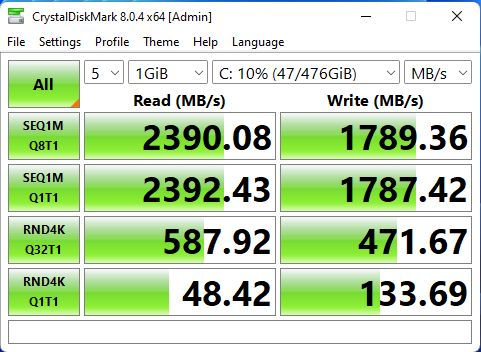
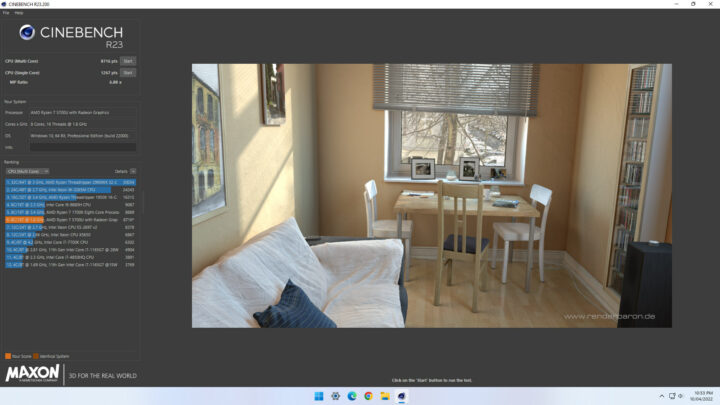
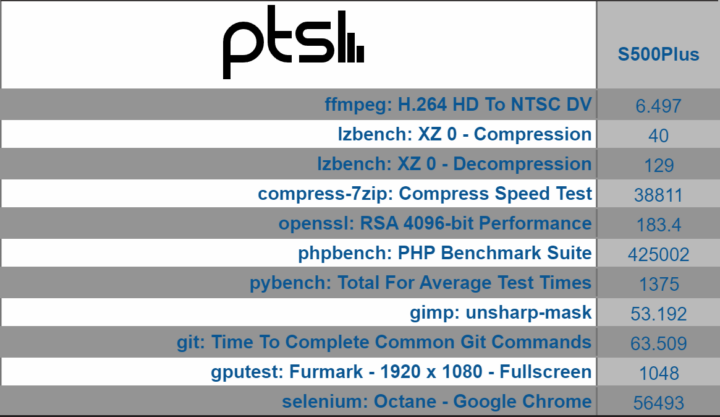


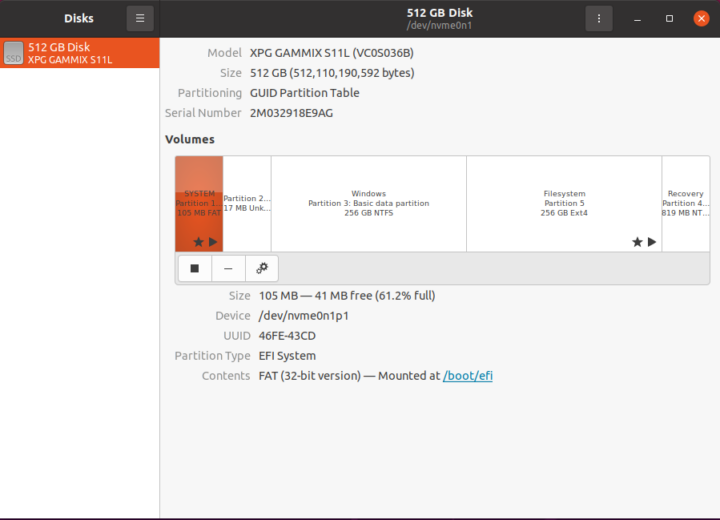
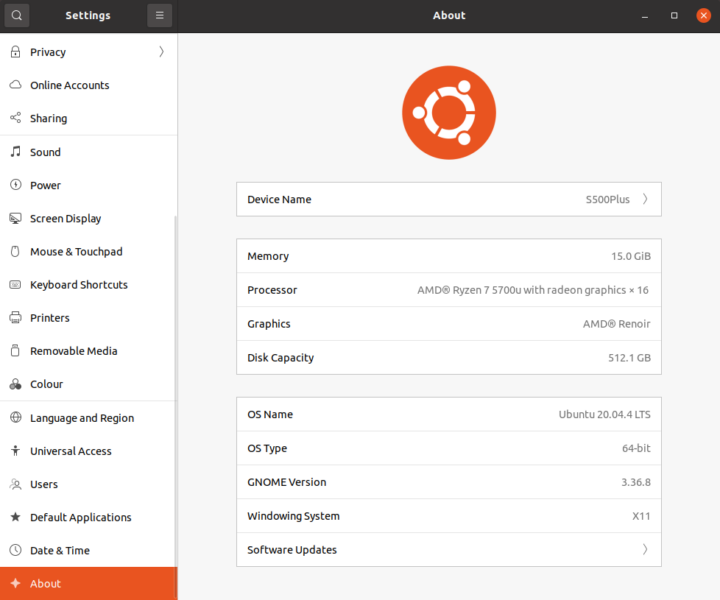
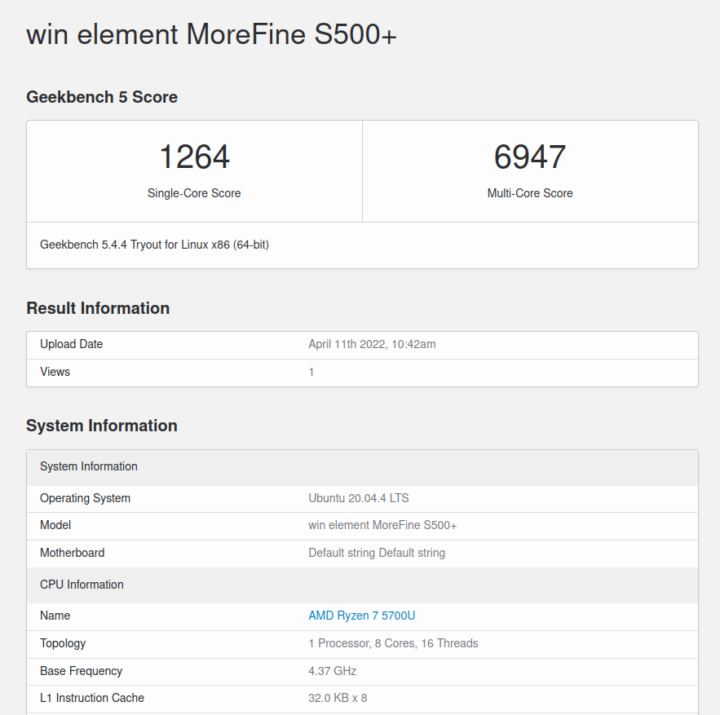
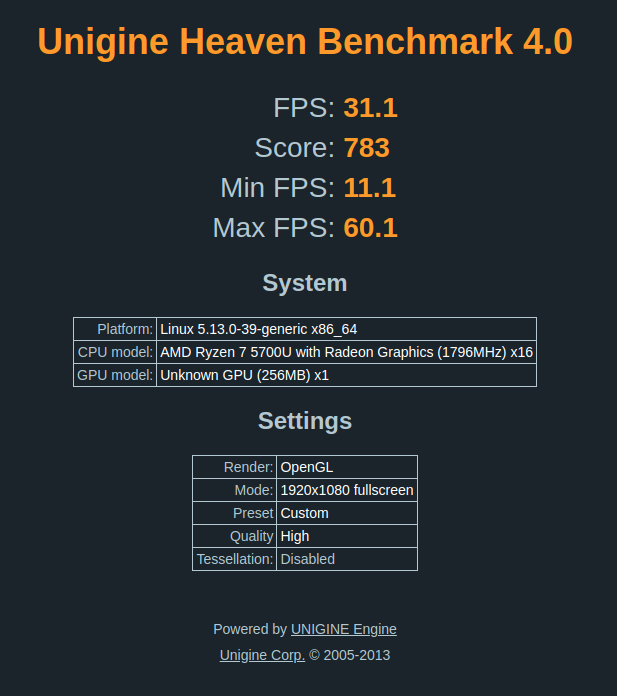
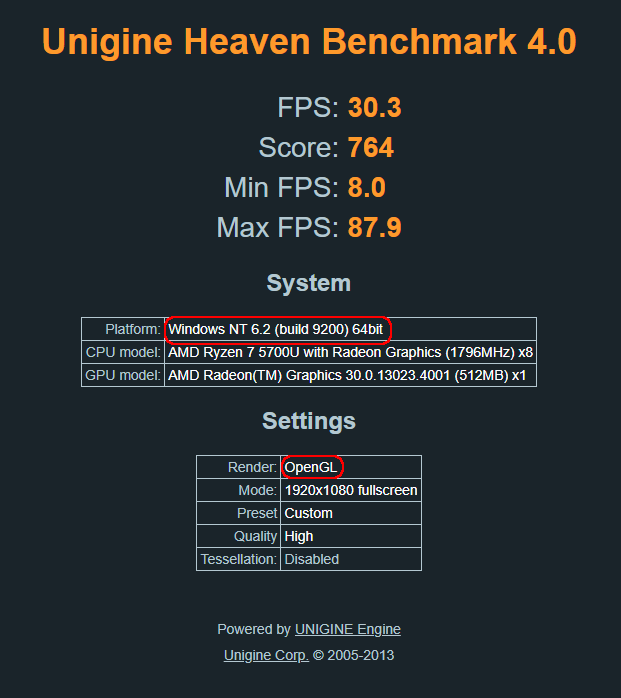
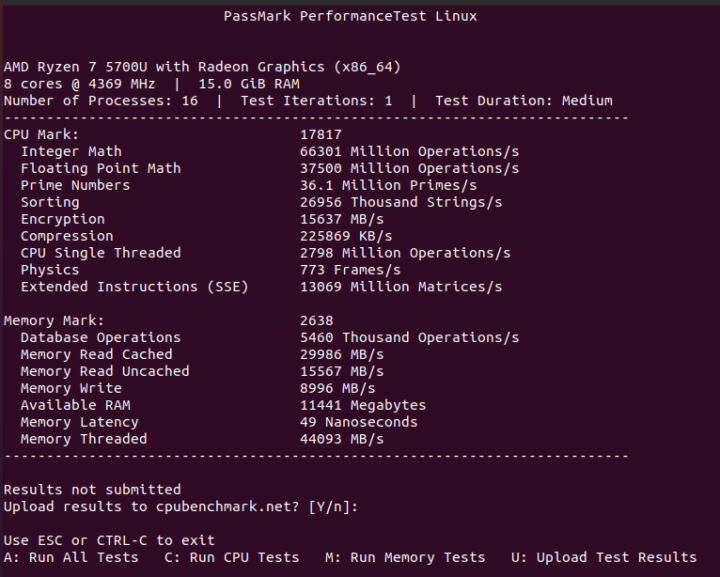
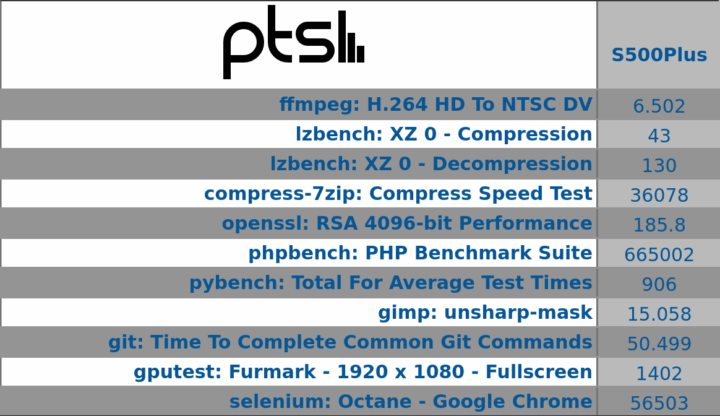



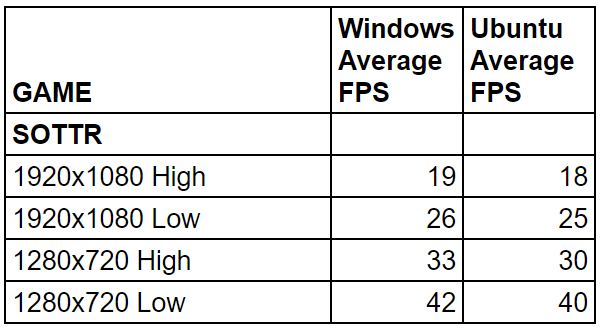
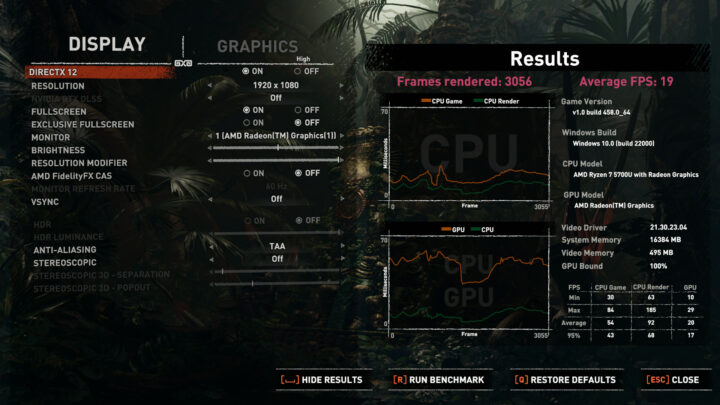
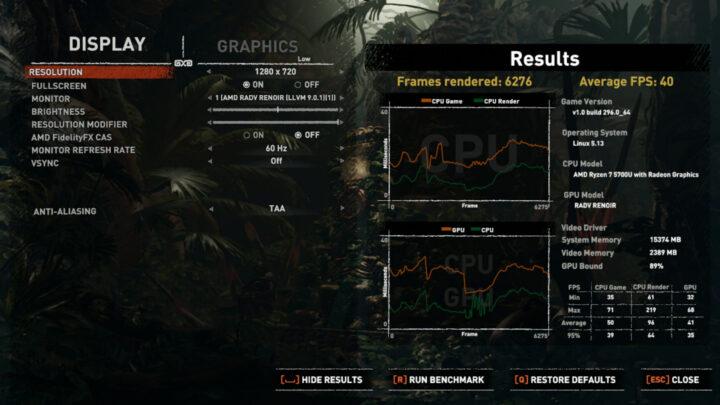
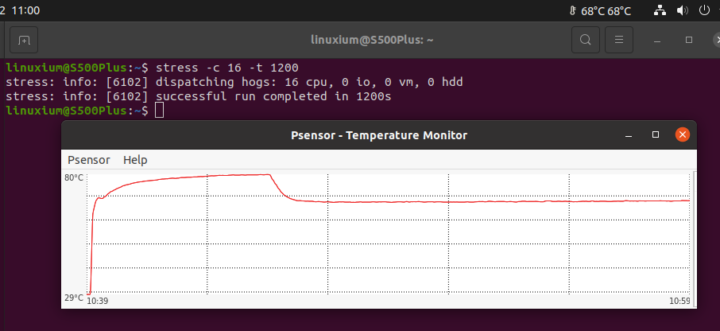
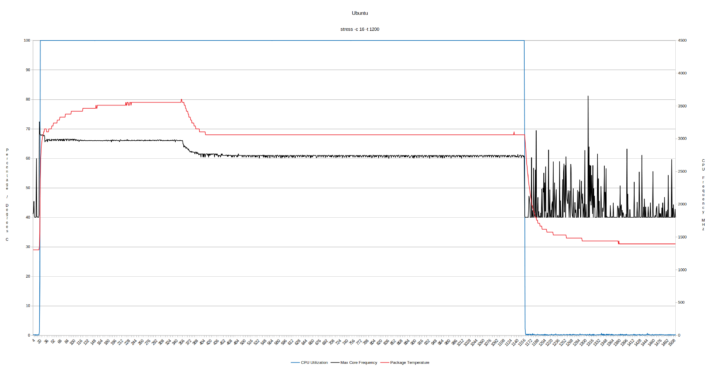
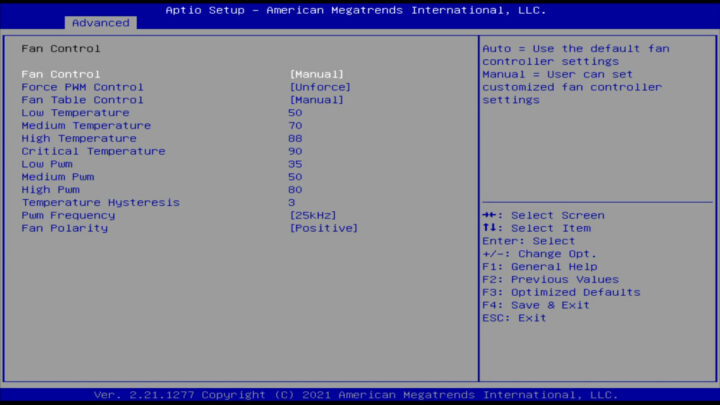





So this could be used as NAS with 2 NVMe SSDs in software RAID?
Yes, especially as it has a 2.5 Gbps Ethernet port as well.
Surprised the fan is so noisy for a 15W part. The fan in my laptop is quite sombre cooling its 35-54W 5800H
This is a 54W processor
$ 769 without mem or ssd, with 32 G RAM and 1T ssd it goes above $ 1000.
No thanks.
The USD 769 price includes 16GB RAM and 512GB NVMe (and Windows license). Note the Morefine page link above initially shows the USD price and then updates to your ‘auto-detected’ regional price which can be changed by clicking the flag that appears at the bottom-left of the page.
Hi linuxium
did u install any driver on win11?
iam little curios, i also bought this system s500+ with 5800u
well in the package was not any drive
thx for ur time and testing
It came with Windows 10 Pro installed so first I used Windows Update to get up to date during which it did update the Display driver to version 30.0.13023.4001. I then used Windows 11 Installation Assistant to upgrade to Windows 11 and again used Windows Update to get up to date which involved mainly cumulative updates. Finally I performed a systen recovery to remove everything giving me a clean Windows 11 to start from. Apart from whatever was updated using Windows Updates I didn’t specifically have to download any drivers outside of the update process.
Hi, I got this machine with an intel 7265 wifi card, and I can’t get wifi working on linux either, do you know how to unbind and bind the driver? I tried your code but not working, thank you
First check that the WiFi MEDIATEK mt7921e driver module is loaded and then get the bus-id for the driver using the ‘ls’ command as shown. Next unbind it from the driver by echoing it to the unbind file and then ‘rebind’ it by echoing it the bind file. If WiFi fails to then connect, repeating the unbind/bind should fix it.